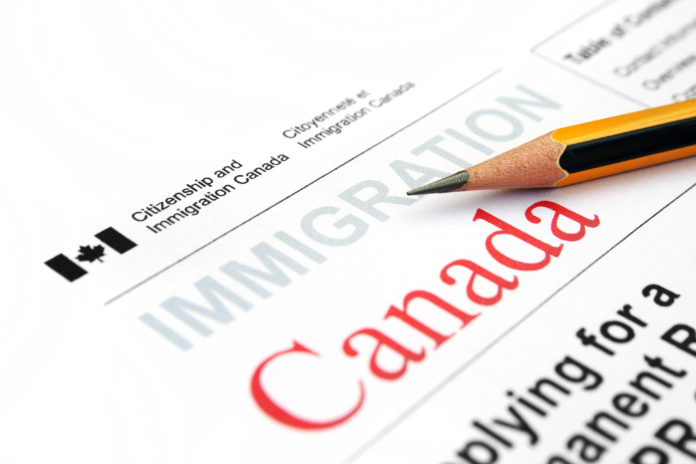
For many international students, the goal is not just to come to Canada to study, but to also have the opportunity to work in Canada, and perhaps become a permanent resident.
While it is worth noting that studying in Canada does not automatically mean you are guaranteed to get permanent residency, the Canadian Bureau for International Education (CBIE) has said that about 60% of international students have the desire to apply for permanent residence in Canada.
By now, many students will already know that the duration of your study will determine the length of your post-graduate work permit (PGWP) in Canada. The PGWP allows international students to work in Canada after their study and acquire the necessary work experience needed for their career and in some cases, for their permanent residence applications.
A one-year program will give you a one-year post-graduate work permit (PGWP), except you do a one-year Masters program.
Starting February 15, 2024, students who graduate from master’s degree programs of less than 2 years (8 months minimum) may also be eligible for a 3 year PGWP. You can apply for a 3-year PGWP, even if the length of your master’s degree was less than 2 years, as long as you meet all other eligibility criteria.
And for other programs, if you do a program of 2 academic years, or you do two different programs of one-year each, you may also be able to get up to a 3-year PGWP.
More info on the PGWP process and requirements in Canada is available here.
Now let’s talk about other things!
When you do a one-year program (that gives you just a one-year PGWP) and desire to get a permanent residence status to remain permanently in Canada, you will need to figure out how to become a permanent resident before the expiration of the one-year PGWP.
There are several permanent residence pathways in Canada, with different requirements. You can check some of the popular permanent residence pathways here
To me, the one year PGWP duration is really a race against time for many students, especially for students who need to work in Canada and get at least one year of work experience in Canada to be eligible for permanent residence.
However, some students have done this successfully in the past, and were able to at least submit a full permanent residence application before the end of the one-year post graduate work permit.
But, to do this, you need to plan well! These are some of the options you have.
The Bridging Open Work Permit (BOWP) Option
Your planning entails knowing your permanent residence options early and ensuring you submit a complete permanent residence application before the one-year PGWP will expire. If you are able to do this, you can then apply for a Bridging Open Work Permit (BOWP) that allows you to continue working until a decision is made on your permanent residence application.
Remember that your PGWP is only issued once in a lifetime, but the BOWP will allow you to keep working because you have a permanent residence application being processed. Note that I said you must have submitted a complete permanent residence application (so it is not just expressing interest or setting up a permanent residence profile that will make you eligible for the BOWP).
More information on the BOWP process and requirements in Canada is available here.
Many students who are able to submit a complete permanent residence application within the one-year duration of their PGWP either got a job early before/after completing their programs, and started working from when they applied for PGWP, or they only needed the Canadian Degree to get more points for other permanent residence programs like Express Entry.
Or they targeted other permanent residence programs such as:
- 1) Rural and Northern Immigration Pilot (RNIP). More info here
- 2) Atlantic Immigration program. More info here
- 3) Student Provincial Nominee Programs. More info here
- 4) The new Category-based Express Entry Program with low express entry cutoff marks, and where you only need 6-month of work experience in a priority occupation. More info here
This allows them to meet the requirements of a permanent residence program early enough and submit a full permanent residence application to become eligible for a Bridging Open Work Permit (BOWP), as explained above.
In other instances, students who are already working and have an employer ready to support them can look at the option of getting an LMIA sponsorship for a work permit through their employer. With this, they can also apply for other types of employer-specific work permits to continue living and working in Canada until a decision is made on their permanent residence application.
Also, it is advisable for students doing a one-year program to consider studying in provinces where there are student-nominee programs that do not require a full year of Canadian work experience.
For instance:
1) In the province of Saskatchewan, you only need 6 months of post-study work experience to become eligible for a student nomination for permanent residence after completing your study in the province.
2) In the province of New Brunswick, you only need a valid Express Entry profile to become eligible for a student nomination for permanent residence after completing your study in the province.
3) In the province of Manitoba, you only need between 0-6 months of post-study work experience (depending on if you get a job in your area of study or not) to become eligible for a student nomination for permanent residence after completing your study in the province.
There are different opportunities in each province, so if you are that type of student who may need a nomination to increase your chances of becoming a permanent resident, then consider this, or know your other options, and plan ahead!
I have written extensively on the different student nomination programs in each province, and you can read more about the processes and requirements in each province here.
The Second Program Option
If you look at available options and it’s looking too difficult to pull through and get your permanent residence with your one-year post-graduate work permit, then you also have the option of doing a 2nd program for another year (after the first program).
With this, you can combine both programs to get up to a 3-year work permit.
The 2nd program must be done BEFORE you apply for PGWP. This is what some people call “1+1 study” in Canada.
The 2nd program can be done anywhere in Canada. It could be another school or another city/province. As long as it is a DLI that is also eligible for PGWP, you are good to go. You are also allowed to start your 2nd program up to 150 days after the completion of the first program.
Depending on the length of the study permit you have, you may also need to extend your study permit to do the 2nd program. And you need proof of funds, and other documents to extend your study permit. The good thing is that doing a study permit extension is easier compared to what the process was when you first applied for a study visa from outside Canada. You will also apply for the study permit extension from inside Canada.
The Post PGWP Option
If you got a one-year PGWP and you did not become a permanent resident (or at least submitted a full permanent resident application to get a Bridging Open Work Permit – BOWP), some of the options left to you when your PGWP expires are:
- 1) Return to school again and get a new study permit (but you won’t get another PGWP after that)
- 2) Find a job/employer to support you with a valid job offer (and LMIA), and sponsor you for a separate work permit
- 3) Check with your province to know if there are work permit extension policy for those who have applied for a provincial nomination in the province (Provinces like Alberta and Manitoba currently have an agreement with IRCC on this)
- 4) Be sponsored for permanent residence by a spouse/partner who is a permanent resident or Canadian Citizen
- 5) Apply for a visitor record to maintain valid status (you cannot work legally with this, but can remain in Canada legally to explore your PR options)
You will find a list of 10 options for those with expired and expiring work permits in Canada here
Take note of this, maintain valid status in Canada, otherwise, you will be required to leave Canada!
I hope someone finds this useful!
If you have questions on Career & Personal Development, Personal Finance, or Building a Personal Brand and want to reach out to us, check what we have here.
DISCLAIMER: The posts and information on this website are not legal advice. We are not Canadian Immigration Consultants and do NOT provide Canadian Immigration Services. For any authorized Canadian Immigration information, services, or support, please check the Government of Canada website at www.canada.ca/immigration
© Olu of Canada





Hi, how can I apply
Thank you Olufemi for such useful information. I am interested in s professional master’s program that is 20 months in duration. What duration of PGWP can I get on that please? What if I have a Canadian postgraduate diploma (acquired via distance learning) in addition?
Your 20 months program should get you a 3-year post grad work permit. Online studies that will count as part of the work permit must be from a DLI that is eligible for PGWP in Canada. And that’s open till Aug 31, 2023. After then online studies will no longer count towards PGWP duration in Canada.
Very informative God bless you for this sir
I am interested in s professional master’s program that is 20 months in duration. What duration of PGWP can I get on that please?
After all the explanation you still ask this question? Na wa for some people o
This is very helpful because I’ve been considering 1 year program due to limited funds.
Please kindly recommend a college with under 5k tuition for graduate certificate if you know any.
5K per year for a graduate certificate? There is none that I know of and that will be eligible for post grad work permit.
Thanks for these eye opener and great informations.
Thank you for the information.
Good morning bro, thanks so much for this useful info. I am applying for a one-year diploma program in personal support worker at the Canadian career college. Can I also apply for work permit after my studies or I will be sent back home after the expiration of my studies? Why I am asking is because you only talked about the postgraduate diploma.
Work permit after study is based on the school having post-graduate work permit eligibility. The school you mentioned doesn’t have that, so you can’t use any of their program to apply for work permit.
I really appreciate this. If I want to apply for another one-year study , when is best suitable to apply? Is it after completion of the first one-year program or before completion of the program. Thanks
Have the admission ready before finishing the first program. You must start the second program within 150 days of finishing the first.
Thank you Olu for the writeup. Please if I apply for a 16 months Graduate Certificate Program will I be qualified for the 3 years PGWP.
Yes. That’s 2 academic year and will get 3-year PGWP
Thank you
Please is a professional certificate from a college accepted for pgwp? Supply Chain Professional Certificate from Norquest College
Your program must be a full time program of at least 8 months, and the school must be eligible for PGWP to get a Post grad work permit in Canada.
Hello sir, thanks for the information.
Can someone applying for a one year graduate certificate course come with his/her dependants. And would you advice a one year course or it’s better to look for a 2 years course…lastly, I am confuse about the diploma, advance diploma courses, i thought diploma and advance diploma is higher than Bsc.. but I am seeing that even after finishing any of the 2 one has to move to doing BSC not even post graduate diploma. I await your reply sir.
Diplomas and Advanced Diplomas are NOT higher than BSC, what is higher than a Bsc is Post-Graduate Diploma, or Post-graduate Certificate, or Graduate Certificate. And yes, someone coming for a one-year program can apply with their dependants.
Thank you so much. Please I want to know when to apply for study permit extension for a one year program after getting admission for the second program, is it after the full completion of the first program or before the completion? (To apply for the study permit extension.)
30 days before the expiration of the first study permit
Mr olu ,
I will like to ask if is possible to Enroll for two different programs in the same college and take it one after the other to make it 2 years
Yes
Thank You for this helpful information I can’t Thank You Enough. Be Blessed.
Hello Mr Olu, I used OJC groupchat on telegram and it really helped me with my visa.
I’m currently in Canada as a student.
I want to start working as a PSW (they posted that with 12 months experience now, I can file in for PR) – please is it true that if I get 1year experience of being a PSW as student won’t count as a student? Because they won’t see it as proper work experience?
Hi, work experience done as a student in Canada cannot be used for that PR application/route.
Happy birthday!
Last one please. If I’m doing a 1 year course. And I get 1 year PGWP – if I get my 1560hrs in PSW field. Is it enough to file for my PR?
Yes it was really helpful
Thank you
Hy Mr Olu
I don’t have any degree here in Nigeria
Can I apply for a 2years diploma in Canada?
And am 31years
Pls help me
yes, you can.
Hi Olu, wow Thank you so much for the information. Please if one applies for a 1-year program but ended up finishing in 16 months due to some circumstances, can it qualify for a 3 years PGWP? Thanks
It doesn’t. It’s still a one-year program by academic design.
This is really helpful and informative. Thank you very much Olu.
I would like to ask though, for a student who got a student visa for 8 months using the LOA issued at April for a May school session but got a deferment letter for September due to visa processing timing. What would you advise as the visa does not cover the entire school session with the issued visa? Thank you
You can apply for an extension after getting to Canada.
Thank you so much for this Mr Olu. Please I would like to ask if I can apply for PR after my one year post graduate program in Canada using my 6 years experience in the IT sector in Nigeria or I must have Canadian work experience
Thank you so much for this Mr Olu. Please I would like to ask if I can apply for PR after my one year post graduate program in Canada using the over 6 years experience I have in Nigeria or I must have Canadian work experience
Hi,
Thank you for the priceless information! If I’m enrolled in a 1 year graduate certificate course (usually ends in 8 months) and I take a 4 month coop program afterwards, what would be the likely length of PGWP in this scenario?
One year pgwp
Thank you for the information. I have a question. If I applied for a one year course and I’m planning on extending by applying for another course. Will I still pay the same amount as an international student since I’m already in Canada ?
Yes, you will pay as an international student, because you are still one (until you have a permanent resident status in Canada).